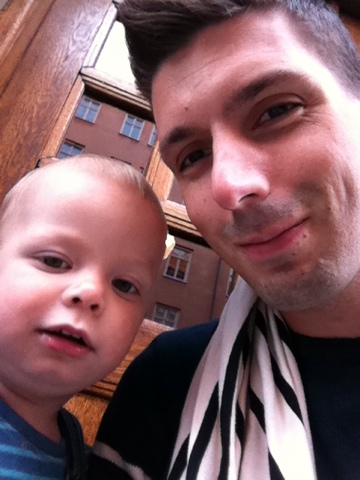Two Conceptions of Hate Crime
29 augusti 2011 | In Hate Crime | 2 Comments

There are basically two different concepts of ”Hate Crime”, corresponding to two different functions. Both are important, both defining a specific category of crime, both tracing particular moral and social problems for a society. One is broader than the other, however, and it is, as we shall see, important to keep them apart. As pointed out by the professor of criminology Eva Tiby; the existence of different conceptions spells trouble when it comes to the relation between registering Hate Crimes, and prosecuting and convicting Hate Criminals. Discrepancy here may well give the impression that the legal system isn’t taking these crimes seriously enough.
The moral status of Hate Crimes
The explicit theme of my earlier posts on this topic has been the moral status of hate crimes. The central arguments concern the claim that Hate Crimes are worse than other, parallell crimes. The category of Hate Crime would, if things were neat, track a ”moral kind” – so that what makes a crime a hate crime is also what makes it worse than other crimes. The reason why we need this category, then, would be to sort out the crimes and punish in proportion to the harm caused or intended, or in proportion to culpability, otherwise defined.
Hate Crime Statistics
But there is another project going on, parallel to this: We want to keep track of types of crimes, quite independently of their moral status. We want to keep track of crimes committed in the night, or in the daytime, crimes committed by young people, and by the old, by people of various levels of education, etc. We don’t want to say that ”night crime” are worse, or better, than other crimes, but it is of considerable interest to find out the conditions with which crime rates vary. So it is with hate: Hate looks like a very likely cause of harmful acts. So how many crimes have this as part of their motive? Is it on the rise, or is it decreasing? How come? Hate and prejudice is also, as pointed out, a big problem for a society, as it influences relations between groups and the likelihood of successful encounters. This just adds to the reasons to keep track of crimes expressing such hatred. Hate crimes are symptoms of something that’s clearly problematic, possibly more so than other crimes.
A distinction with a significance?
Now we have a distinct possibility here: While hate crimes are a significant problem for a society, not every individual hate crime is worse than a non-hate equivalent. It should be included in the statistic, but that does not mean that it should be punished more than that equivalent. At the same time: some hate crimes are worse, because of features non-trivially related to their being ”hate crimes” in the first place. This is important: there is, or at least might be, a more narrow category of ”hate crime” that cuts out a moral kind, and thus should be more harshly punished.
The function of criminal law and its side-constraints
The justification of punishment enhancement for hate crimes obviously depends on the function of criminal law. Is it just a tool to bring about desired effects, or does it essentially involved retribution, punishing the guilty? Is it’s function rehabilitation, or protection of the non-criminal community? Even if we think that we can employ the criminal law in order to protect certain societal values, and promote general welfare, there are certain restrictions to what can be done in the name of the law. For instance, we should only punish people for acts for which they are responsible (more on that in a later post). The proportionality principle may be such a constraint as well. Some argue that a further restriction is that we are not allowed to punish, or add punishment, for motive, only for intentions. And, as argued in earlier posts: not all hate motivated crimes are accompanied by specific intentions.
If Hate Crime shall make sense as a legal category, a specific punishment seems to be required. But if what’s been claimed is true, not all ”hate crimes” in the statistical sense should be prosecuted as hate crimes. Only registered as such. While this seems intellectually quite unproblematic, there is a clear problem with the kind of ”message” such a practice would send out. One effect of hate crime legislation, it would seem, is that it discourages hate and prejudice in general. Would this function be undermined by recognizing that not all hate crimes should be punished as such?
This, I believe, lies at the heart of the Hate Crime Legislation Controversy
Hi Blog, it’s me David
28 augusti 2011 | In Meta-philosophy parenting Psychology Self-indulgence | Comments?Most blogs are abandoned within a year, according to statistics that I just made up. Due to distractions, lack of readers or time, or just the failure to make blogging part of the unforced everyday writing that just sort of happens in a writing person’s life. The sort of writing that doesn’t take more time than it does to read it. Just thinking in a slightly more public medium.
What I’m saying is that I intend to, and kind of think I ought to. Just not when it competes with the much superior activity of hanging with this guy.
